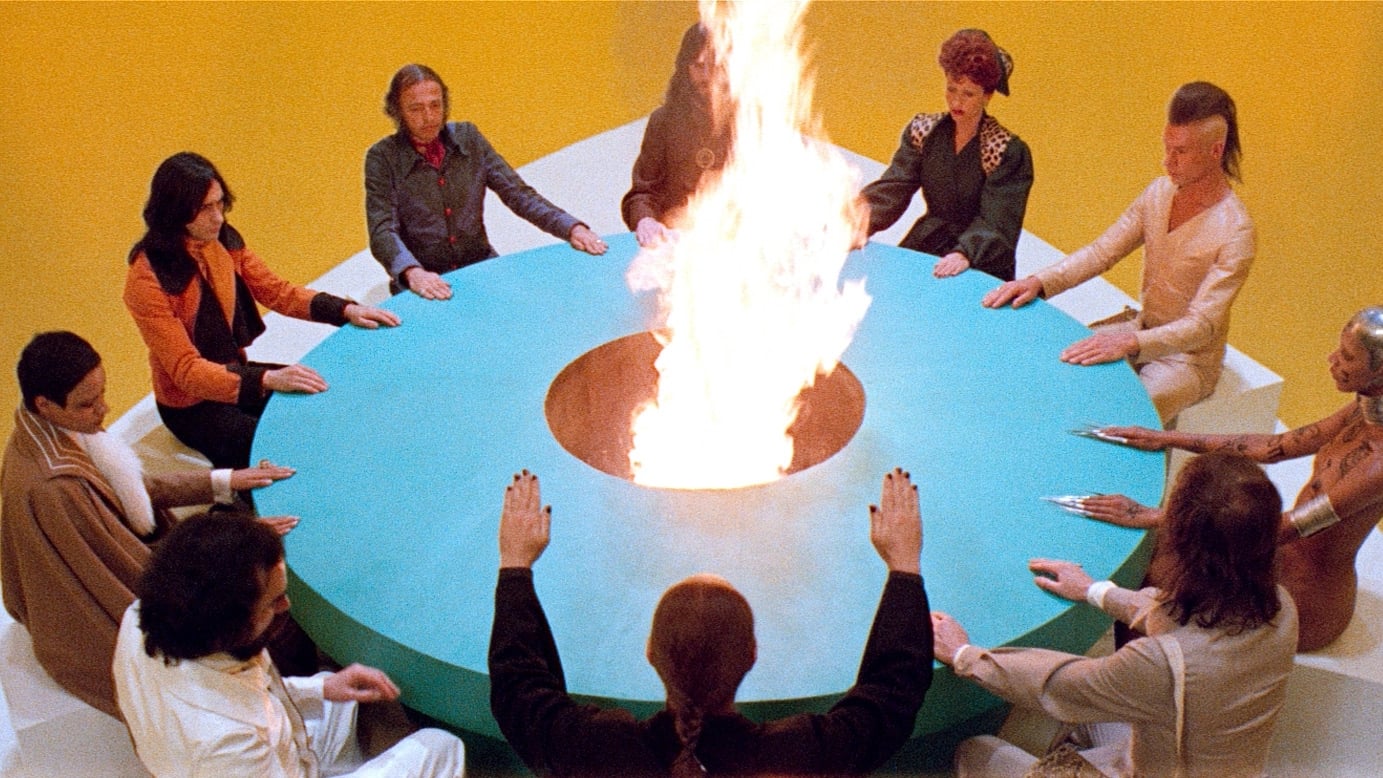In the world of film and media, production roles are vital to crafting compelling stories that resonate with audiences. Among these roles, the creative producer and executive producer stand out as two key figures whose contributions shape every aspect of a project.
While they work closely together, their responsibilities, approaches, and influences differ significantly. For aspiring filmmakers and industry professionals alike, grasping the nuances between these two positions can be crucial for career development and successful collaboration.
Understanding who does what is not just trivia—it’s essential for anyone looking to navigate the complex landscape of film production. The interplay between creative and executive producers can dictate the narrative direction, budget management, and overall success of a project.
Whether you’re a student eager to break into the industry or a seasoned content creator seeking new insights, recognizing these vital distinctions will empower you to forge stronger partnerships in your future endeavors. Let’s dive deeper into how each role contributes uniquely to the magic behind the camera.
What is a Creative Producer?
A creative producer plays a pivotal role in the film and media landscape, acting as the bridge between vision and reality. With a focus on the artistic aspects of a project, creative producers are responsible for shaping the story, developing characters, and ensuring that the overall vision aligns with creative intentions.
They are often involved from the initial concept stage through to pre-production, working closely with writers and directors to refine scripts and concepts while maintaining artistic integrity throughout the process.
One of the key responsibilities of a creative producer is to cultivate an environment where creativity can flourish. By collaborating regularly with writers, directors, and other creatives, they foster dynamic discussions and brainstorming sessions that fuel innovative concepts.
Consider the example of iconic films like “The Princess Bride,” where producer Rob Reiner was instrumental in marrying William Goldman’s whimsical script with a compelling visual style. His ability to work collaboratively enabled the team to create a beloved classic that is both entertaining and narratively cohesive.
Additionally, creative producers not only contribute ideas but also play an essential part in decision-making concerning visual aesthetics and storytelling techniques. They help guide choices about casting decisions alongside directors or selecting cinematographers whose styles resonate with their envisioned narrative.
Their insight ensures that every facet of production—from set design to music scores—aligns harmoniously with the project’s core vision. This synthesis becomes especially crucial when adapting existing works into different formats; recognition for balancing respect for source material while breathing fresh life into narratives marks a successful creative producer.
Ultimately, creative producers serve as advocates for storytelling within production teams. Their passion for narrative drives them to push boundaries creatively while negotiating necessary constraints within budgetary or logistical realities faced during production phases.
In doing so, they not only ensure quality content but inspire collaborative efforts that shine through in final projects—a blend of collective artistry shaped by focused guidance rooted in an unwavering commitment to storytelling excellence.
What is an Executive Producer?
An executive producer plays a pivotal role in the film and media industry, often serving as the financial backbone of a project. This position is defined by its primary functions: securing funding, overseeing budgets, and managing logistics throughout the production process.
Typically involved from a project’s inception to its completion, executive producers ensure that financial resources align with creative visions while keeping an eye on marketability and profitability.
For instance, think of how executive producer Kevin Feige has guided Marvel Studios; his precise understanding of franchise economics complemented by a vision for interconnected storytelling propelled the studio into unprecedented success.
Financing is one of the most crucial responsibilities of an executive producer. They are tasked with budgeting not only the overall cost but also allocating funds strategically across various departments such as cast salaries, set design, and post-production efforts.
This requirement demands both artistic sensibility and adept financial management—skills necessary to navigate negotiations with investors or studios eager to recoup their investments while remaining attuned to the creative direction of the project.
For example, when producing smaller independent films like “Moonlight,” executive producers must create frugal yet effective strategies that maximize limited resources without compromising narrative integrity.
In addition to financial stewardship, oversight of team dynamics forms another significant layer of an executive producer’s responsibilities.
They manage various stakeholders involved in the project—from directors to crew members—to foster a collaborative atmosphere where all voices are heard but ultimately aligned towards common goals.
This can often mean troubleshooting conflicts or facilitating communications between different departments to enhance productivity during shooting days.
The recent resurgence of streaming services emphasizes this role’s importance; projects require nimble coordination among various facets including talent contracts, distribution deals, and marketing strategies—all underpinned by appropriate financing.
Ultimately, while creative producers focus on shaping stories and fostering artistic collaboration among creatives, executive producers provide stability through budgetary control and strategic planning.
Both roles are integral to successfully bringing a project from concept to completion; understanding these distinctions not only enriches aspiring filmmakers’ knowledge but also highlights how each position contributes uniquely to standing out in today’s competitive landscape.
Key Differences Between Creative Producers and Executive Producers.
Understanding the key differences between creative producers and executive producers is crucial for anyone aspiring to navigate the intricate world of film and media production.
One of the primary distinctions lies in their decision-making authority. While creative producers significantly influence the project’s artistic vision, from fleshing out characters to determining narrative arcs, executive producers hold the reins on financial decisions and overall project feasibility.
For instance, a creative producer may propose an ambitious sci-fi storyline requiring cutting-edge visual effects, but it’s up to the executive producer to assess whether that vision can be realized within budget constraints, thereby steering its potential toward commercial viability.
In terms of daily tasks, both roles exhibit stark contrasts during various phases of production. During pre-production, creative producers focus on script development and casting choices that align with their artistic vision, collaborating closely with writers and directors to finalize details about how scenes should be visually depicted.
Conversely, executive producers are often engaged in meetings with investors or stakeholders during this time—crafting budgets, securing funding, and establishing schedules to ensure everything stays on track financially before filming even begins.
Once shooting starts, you’ll find creative producers on set guiding actors into performances aligned with their original story concepts while troubleshooting creativity-based challenges; meanwhile, executive producers are likely managing logistical issues behind-the-scenes concerning schedules or vendor contracts.
As projects progress into post-production, these roles again diverge in focus. Creative producers typically dive deep into editing processes—working closely with editors to fine-tune sequences that maintain narrative integrity and character development.
They bring a critical eye toward ensuring that the final product aligns with their initial vision for aesthetics and tone. In contrast, executive producers often evaluate post-production reports regarding market reception metrics or finalize distribution deals based on how well they think the film will perform commercially after release.
Ultimately, both positions—while fundamentally different—are interdependent enough that they contribute significantly to a project’s success from varied angles.
The synergy between a creative producer’s visionary insights and an executive producer’s business acumen can create not just cohesive films but also enriched audience experiences that resonate well beyond merely meeting financial expectations.
Understanding these nuances allows aspiring filmmakers to appreciate how specialized each role is yet vital in crafting successful productions.
Skills Required for Creative Producers.
Creative producers are essential architects of storytelling in the film and media landscape, requiring a unique set of skills to flourish in their roles. At the heart of successful creative production lies the ability to craft compelling narratives.
This involves not just a vivid imagination but also a skilled understanding of structure and character development. For instance, a creative producer might collaborate with screenwriters during the early draft phases, offering insight into how characters can evolve or how subplots can enhance the main storyline.
Their design sense plays a vital role in visual storytelling too; an effective creative producer draws from art direction, cinematography, and even costume design to ensure that every element resonates with the project’s vision.
Interpersonal abilities are equally crucial for a creative producer’s success. The role requires constant collaboration with directors, writers, and various department heads throughout production. Building rapport across these groups can make or break a project’s trajectory.
For example, consider situations where adjustments need to be made quickly due to unforeseen circumstances—such as a location change on short notice. A creative producer who has established solid relationships within their team can facilitate timely solutions by fostering open communication and encouraging collaborative brainstorming among creatives.

Moreover, adept problem-solving skills are necessary when navigating challenges that arise during production phases—whether logistical hurdles or artistic disagreements. An example would be when budget constraints affect visual effects initially planned for a scene; here, a creative producer needs to pivot plans while retaining narrative integrity and audience engagement.
They might explore alternative approaches or enlist input from graphic designers to brainstorm cost-effective solutions that align with the original vision without sacrificing quality.
Together, these skills form the backbone of a successful creative producer’s toolkit: imaginative storytelling melded with emotional intelligence and strategic problem-solving capabilities all contribute significantly toward bringing visionary projects alive.
Understanding this blend equips aspiring filmmakers and industry professionals alike to recognize what it takes to navigate creatively intensive environments effectively—ultimately underscoring why outstanding projects hinge upon exceptional leadership within the realms of creativity.
Skills Required for Executive Producers.
Executive producers play a crucial role in overseeing the financial and logistical aspects of film and media projects. One of their most essential skills is financial acumen, which includes creating budgets that reflect both the creative vision and practical constraints of the production.
For instance, when producing a high-budget blockbuster, an executive producer must carefully assess costs associated with special effects, A-list talent salaries, location shoots, and marketing campaigns.
Strong budgeting not only allocates funds wisely but also anticipates potential cost overruns, ensuring that a project remains financially viable throughout its development.
Another critical skill for executive producers is strong leadership. Managing diverse teams—from directors to artists—requires the ability to inspire collaboration while maintaining productivity. An effective executive producer creates an atmosphere where every team member’s contributions are valued.
A good example can be seen in successful series like “Game of Thrones,” where multiple departments had to work seamlessly together under tight deadlines. The executive producer coordinated efforts across various teams while ensuring each department felt empowered to bring their best ideas forward.
Negotiation skills also play a vital part in an executive producer’s role. Handling contracts with cast members, crew personnel, and outside partners requires finesse and strategic thinking.
For instance, securing top-tier actors might involve negotiating terms that include salary benchmarks as well as appealing working conditions on set.
An adept executive producer understands how to leverage relationships within the industry for mutual benefit—ensuring all parties feel satisfied with their agreements—which can often lead to smoother productions down the road.
Ultimately, skills such as financial management, leadership proficiency, and negotiation expertise equip executive producers to navigate the complexities of production effectively.
By balancing creative aspirations with fiscal responsibility and fostering cohesive teamwork, they lay the groundwork for projects that not only aim for artistic excellence but also achieve commercial success in today’s competitive market landscape.
Career Paths: Becoming a Creative Producer vs. Executive Producer.
Embarking on a career as either a creative producer or an executive producer typically begins with a solid educational foundation in media-related disciplines. Many aspiring producers opt for degrees in Film Studies, Television Production, or Media Arts, where they gain essential knowledge about storytelling, production techniques, and industry standards.
Courses focusing on scriptwriting and visual aesthetics are particularly beneficial for creative producers, as they cultivate the artistic sensibility required to shape compelling narratives. On the other hand, executive producers might benefit from studying business or finance alongside their film education, enabling them to navigate complex budgetary and logistical challenges effectively.
The journey into these critical roles can vary significantly depending on individual interests and strengths. Many creative producers start their careers in entry-level positions such as production assistants or in roles within development departments at studios.
This allows them to engage directly with scripts and foster relationships with screenwriters and directors early on. In contrast, aspiring executive producers often rise through the ranks within production companies or studios by acquiring hands-on experience in budgeting or project management before taking the reins of larger productions.
It’s not uncommon for these professionals to begin their careers as assistants or coordinators—positions that offer insight into both creative processes and financial considerations.
Networking is invaluable in the world of film and media; establishing connections can open doors that lead to career advancements for both creative and executive producers. Leveraging industry events like film festivals, workshops, and seminars allows budding producers to meet seasoned professionals who can provide mentorship opportunities or even job leads.
Additionally, joining organizations focused on filmmakers when possible offers networking opportunities tailored to specific areas of interest—be it creatively inclined groups that welcome aspiring storytellers or associations emphasizing industry logistics beneficial for emerging executive producers.
Ultimately, whether aiming to become a creative producer or an executive producer, a well-rounded approach—including formal education combined with practical experience and robust networking initiatives—can significantly enhance prospects in this competitive field.
Aspiring professionals should embrace both roles’ unique qualities while positioning themselves strategically within the industry landscape as they craft their own paths toward success.
Conclusion: Synergy for Success in Film Production.
Understanding the distinct roles of creative and executive producers is essential for aspiring filmmakers and industry professionals alike. Both positions offer unique contributions that greatly impact the quality and success of a project.
Creative producers bring vision and artistry, while executive producers ensure that resources are managed effectively and that the production runs smoothly. Their collaboration often leads to innovative storytelling and efficient execution, as seen in successful partnerships like those found in blockbuster films.
As you consider your path in the film industry, remember that both creative and executive routes hold immense value. Embrace your individual strengths—whether they lean toward creativity or management—and pursue the role that resonates with you.
By recognizing how these roles complement each other, you’ll appreciate their importance in bringing stories to life on screen. With dedication and a clear understanding of these functions, you’ll be well-equipped to make a meaningful impact in the world of filmmaking.

I am a highly experienced film and media person who has a great deal to offer to like-minded individuals. Currently working on several exciting projects, I am a film and media practitioner for over a decade. I have achieved a great deal of success in my professional career.





